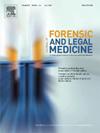Mapping the landscape: Analysis of publication trends in forensic anthropology. Insights from Poland
IF 1.2
4区 医学
Q3 MEDICINE, LEGAL
引用次数: 0
Abstract
Academic research in forensic anthropology is a crucial aspect for the development of this highly applied science, especially considering its social impact. The interdisciplinary character of forensic anthropology and very diversified caseload create a context in which theoretical and practical challenges emerge. This requires a swift response from the scientific community to develop new solutions or improve existing approaches. Although much is being produced worldwide in the field of forensic anthropology, there are only a few countries that lead this trend. In this article, the authors attempted to critically examine academic research within forensic anthropology in Poland by analysing its knowledge production over the last decades. A meticulous bibliographic analysis resulted in the discovery of 220 relevant academic records published between 1952 and 2023. Almost 70 % of identified papers were published in national journals and 58 % appeared in Polish. In total, 36 different institutions participate in knowledge production in this field. International collaboration is very low (∼6 %) and over 50 % of records did not involve any academic partnership. The most common type of paper is case report, primarily related to mass grave exhumations of war and totalitarian crimes. We conclude that Polish forensic anthropology research is derivative rather than original (with case reports and review papers as most frequent) and Poland remains a relatively insignificant actor when considering the overall knowledge production in forensic anthropology. In the discussion we try to understand these outcomes in the light of Polish historical context and current academic, and socio-political conjuncture.
绘制景观:法医人类学出版趋势分析。来自波兰的启示
法医人类学的学术研究是这门高度应用科学发展的一个重要方面,特别是考虑到它的社会影响。法医人类学的跨学科特征和非常多样化的案件量创造了一个理论和实践挑战出现的背景。这需要科学界迅速作出反应,开发新的解决方案或改进现有方法。虽然法医人类学在世界范围内取得了很多成果,但引领这一趋势的国家却很少。在这篇文章中,作者试图通过分析其过去几十年的知识生产来批判性地审视波兰法医人类学的学术研究。经过仔细的书目分析,发现了1952年至2023年间发表的220份相关学术记录。几乎70%的鉴定论文发表在国家期刊上,58%发表在波兰。总共有36个不同的机构参与这一领域的知识生产。国际合作非常低(约6%),超过50%的记录不涉及任何学术合作。最常见的文件类型是案件报告,主要与战争和极权主义罪行的大规模坟墓挖掘有关。我们的结论是,波兰法医人类学研究是衍生的,而不是原创的(最常见的是案例报告和评论论文),在考虑到法医人类学的整体知识生产时,波兰仍然是一个相对微不足道的角色。在讨论中,我们试图根据波兰的历史背景和当前的学术和社会政治形势来理解这些结果。
本文章由计算机程序翻译,如有差异,请以英文原文为准。
求助全文
约1分钟内获得全文
求助全文
来源期刊

Journal of forensic and legal medicine
MEDICINE, LEGAL-
CiteScore
2.70
自引率
6.70%
发文量
106
审稿时长
57 days
期刊介绍:
The Journal of Forensic and Legal Medicine publishes topical articles on aspects of forensic and legal medicine. Specifically the Journal supports research that explores the medical principles of care and forensic assessment of individuals, whether adult or child, in contact with the judicial system. It is a fully peer-review hybrid journal with a broad international perspective.
The Journal accepts submissions of original research, review articles, and pertinent case studies, editorials, and commentaries in relevant areas of Forensic and Legal Medicine, Context of Practice, and Education and Training.
The Journal adheres to strict publication ethical guidelines, and actively supports a culture of inclusive and representative publication.
 求助内容:
求助内容: 应助结果提醒方式:
应助结果提醒方式:


